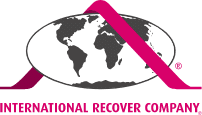According to economist Milton Friedman, the primary purpose of a business is to maximize profits for its owners, and in the case of a publicly traded company, the shareholders are its owners. Others argue that the primary purpose of a business is to serve the interests of a larger group encompassing employees, customers, and even society as a whole. There are many other concepts that can be put behind a business, but in any type of business, whether small or large, money is the fuel that drives it forward.
For your business to have plenty of fuel, your outstanding payments must be reduced as much as possible. So here are some tips to keep you on top of things and keep your business running as planned.
1- Know your customer
You are less likely to run into payment issues if your business chooses to deal with customers who pay their invoices on time. Sometimes running a business credit check on a new customer or even a simple financial check on your government's financial authority website can be helpful. Almost always, this financial information is free and publicly available.
This information will help you establish terms that suit your client's financial situation. For example, you might require an upfront payment from a customer facing financial uncertainty.
2- Request immediate payment
Immediate payment can take several forms:
- Pay on purchase: Where possible, accept full payment at the time of sale, for example in retail.
- Deposit: If full payment is not suitable, request a deposit from your client. Depending on the case, 25 to 50% deposit, or even several installments.
- Fast billing: If you can't negotiate a deposit, make sure you bill as quickly as possible so you can get your money back quickly. You could also in some cases offer an early payment discount (e.g. 2% on the invoice total if payment is made within 10 days).
3- Offer simple payment options
Improve your cash flow by making payments easier. Consider the following options:
- Accept cash payment. Although less used than before, cash payment remains a simple and direct means of payment.
- Accept credit and debit cards: Your customer may appreciate the delay offered by the credit card.
- Accept installment payments: If you are delinquent, consider accepting post-dated checks or scheduled electronic payments until the debt is settled.
- Accept partial payments: Ask your financially distressed customer to pay part of the debt today and schedule payment of the balance with them. Consider having an acknowledgment of debt signed.
4- Communicate with your customer
Don't jump to conclusions. Contact your customer regarding any overdue amounts. It could be a simple communication error. For example, your sales team may have misrepresented your services and the customer doesn't want to pay. The product may have been shipped incorrectly. Or the invoice was simply not received by the customer.
5- Use a debt collection company
Do not hesitate to entrust the collection of your invoices to a professional. Although these companies take a portion of the amount collected or charge a fee for their services, they have more experience in debt recovery than you. If you are concerned about maintaining a positive relationship with your client, going through a debt collection company will help you maintain good business relations while monitoring the collection process remotely.
Are you facing unpaid debts and looking for a solution? Contact INTERNATIONAL RECOVER COMPANY® for a tailor-made strategy.




